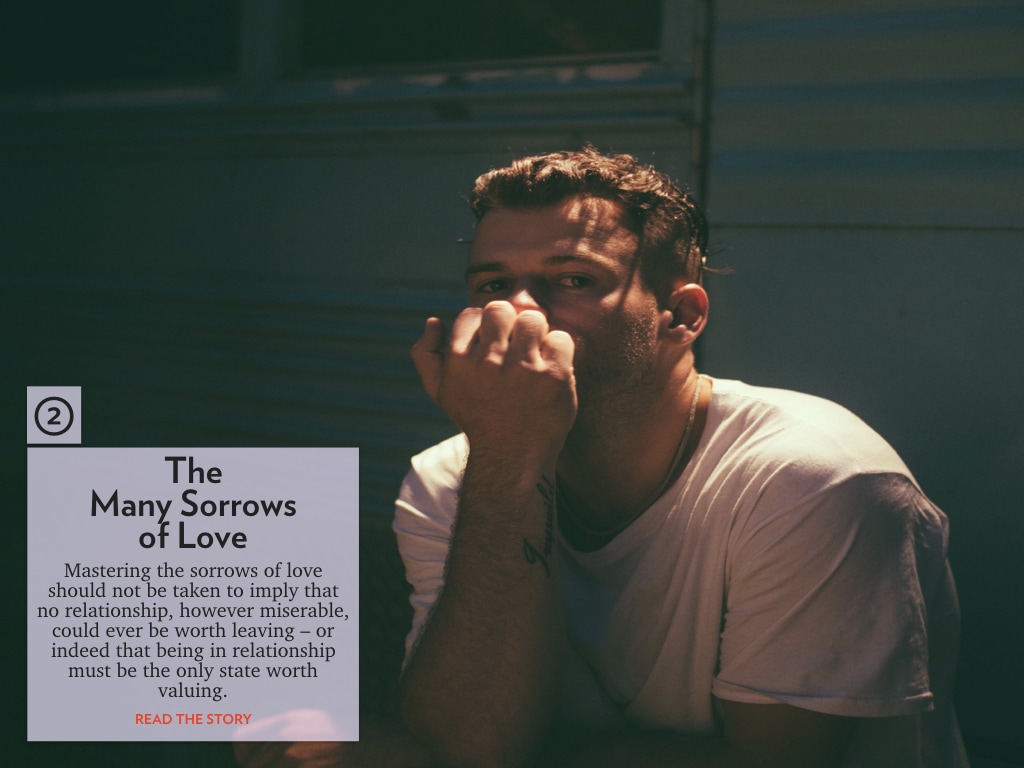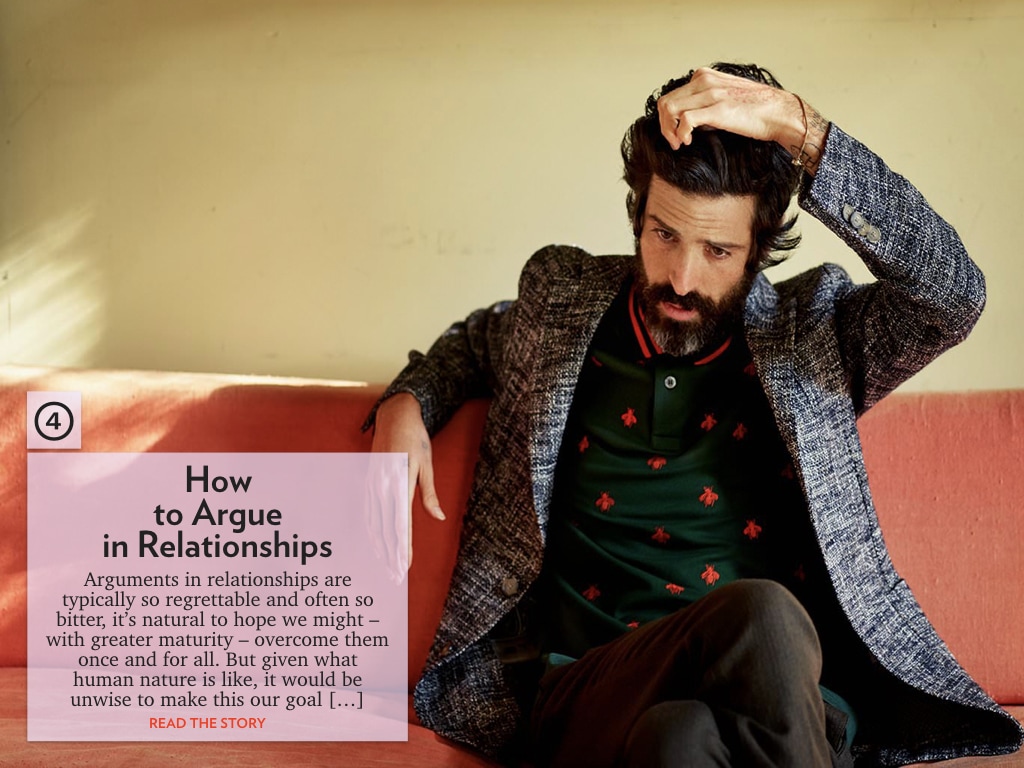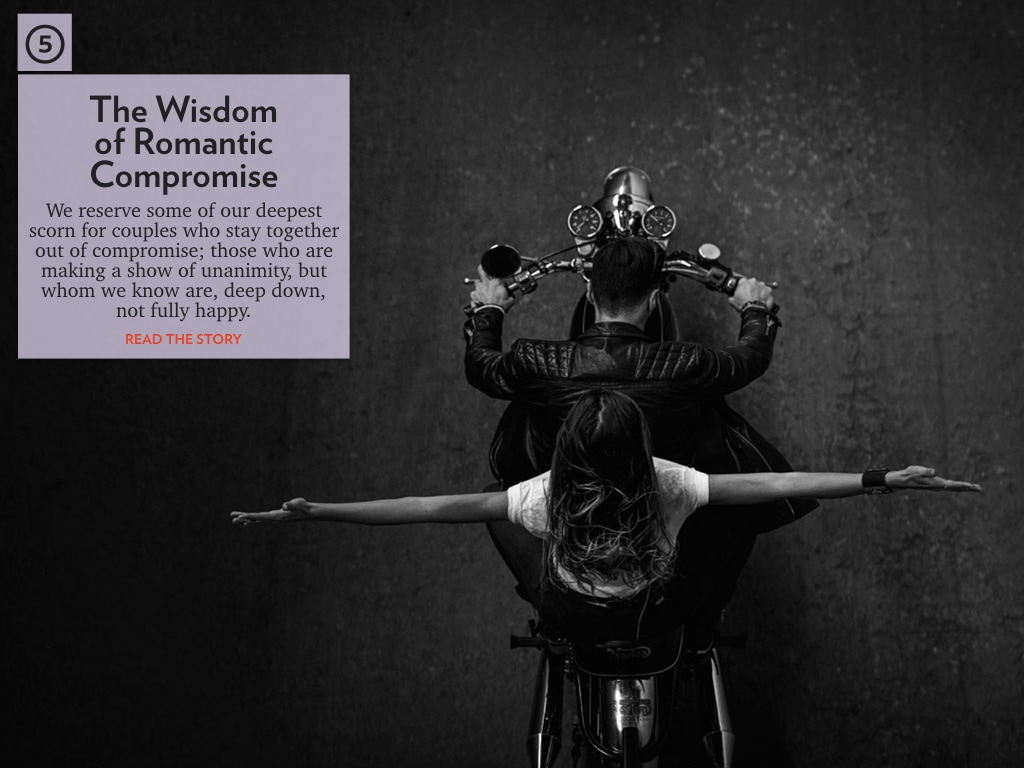⊕ PSYCHOLOGY | LOVE
Love Realism
How happy we are is to a large extent dependent on whether we judge certain problems to be normal or not. And because our societies have failed to normalise – and speak honestly about – a great many issues in love, it is absurdly easy to believe ourselves uniquely cursed. |
|
|
|
|
MORE
|




